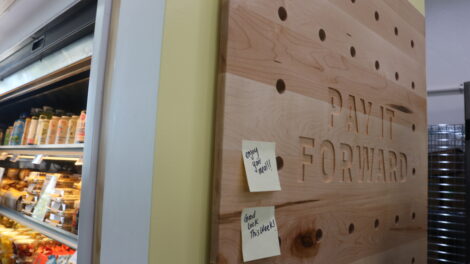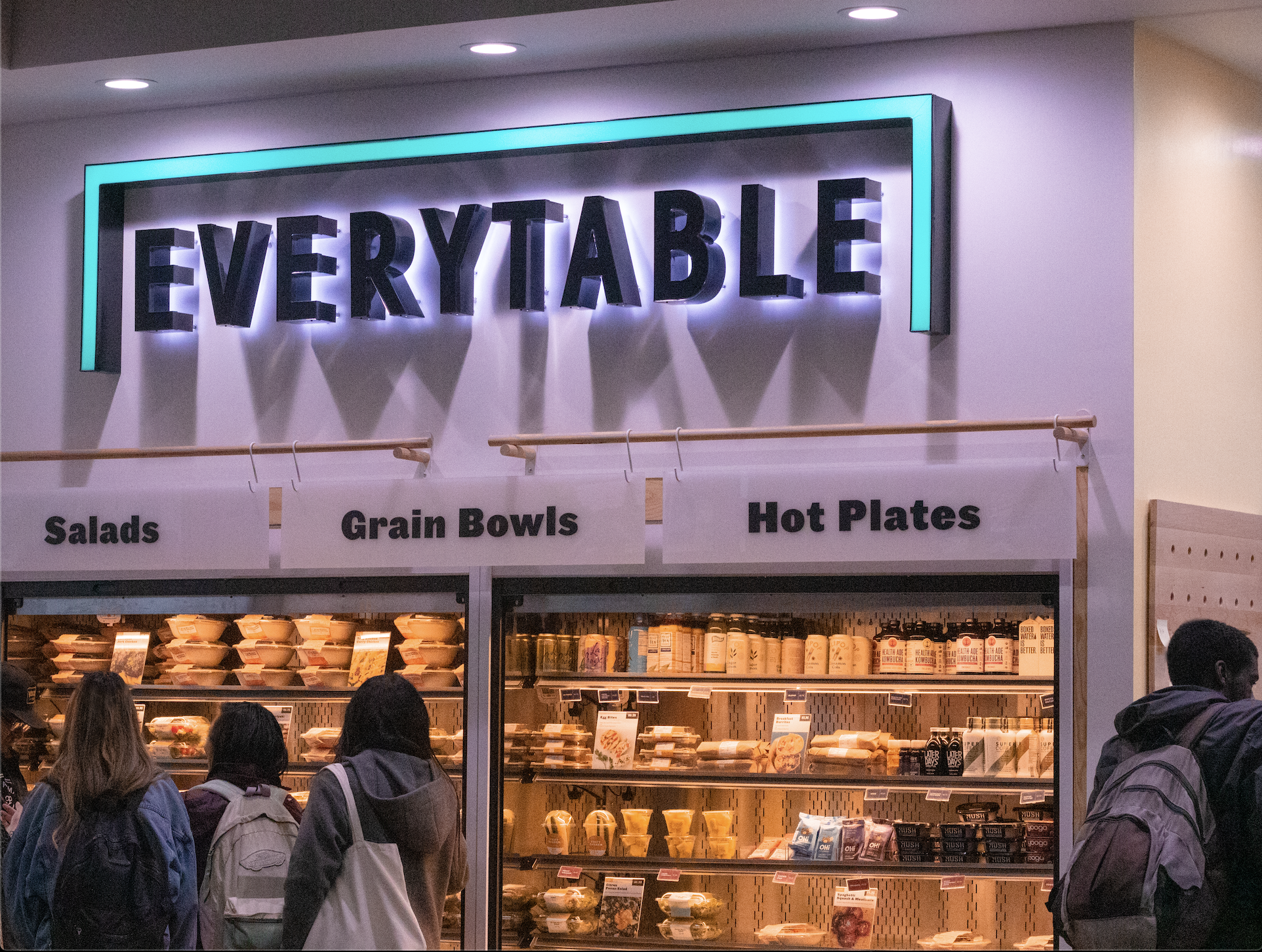EveryTable is now open in LSU. Photo by Nova Blanco-Rico.
By Matthew Alford, Staff Writer
There’s a new eatery in the Loker Student Union–and there’s a possibility that if you can’t afford a meal, you can get it for free.
The pay it forward program at EveryTable, which had a soft opening in the LSU Nov. 19 and will officially open next month, is just one of the reasons why this Los Angeles-based chain’s website calls its concept “revolutionary” and why it has generated such a buzz since opening its first location in South Los Angeles in 2016.
The CSUDH location is its ninth. But like every other EveryTable, its menu of healthy, locally-sourced salads, grain bowls, hot plates and other items are designed by chefs, prepared every morning at a central location and then transported to its nine outlets. And, the menu at each EveryTable is priced in relation to the demographics of the community where it’s located, meaning the same salad you buy at its Brentwood location will be a few dollars more than the one in Watts.
But EveryTable also seems to exhibit an interest in integrating itself into those communities, and tailoring the menu, pricing and service to what that community needs, whether it’s giving residents an alternative to fast food in “food deserts” like South LA, giving people strapped for time a healthier grab-and-go alternative than a hot dog at 7-11, or helping to address a huge need at CSUDH: food insecurity.
“We’re proud to serve a diverse menu and have enough variety to appeal to a wide range of tastes and dietary needs,” said Monica Rutkowski, EveryTable’s director of marketing. “When we decide on the pricing of our menu, we consider the demographics and household income levels of our audience. In the case of CSUDH and other universities, our priority is to serve the students and help address food insecurity issues on campus.”
The pay it forward program can be appreciated by any college student on a tight income. Customers can voluntarily leave an amount higher than their receipt, not as a tip to employees, but one that subsequent consumers can utilize if needed. When there is enough money added up, sticky notes are placed on a board with a dollar amount and anyone can grab the note, hand it to a cashier and ask for whatever the kindness of strangers has provided.

“I look forward to the pay it forward program and plan to pay [into] it twice a week,” said Eric Oum, the marketing and innovation project coordinator for the CSUDH Foundation.

